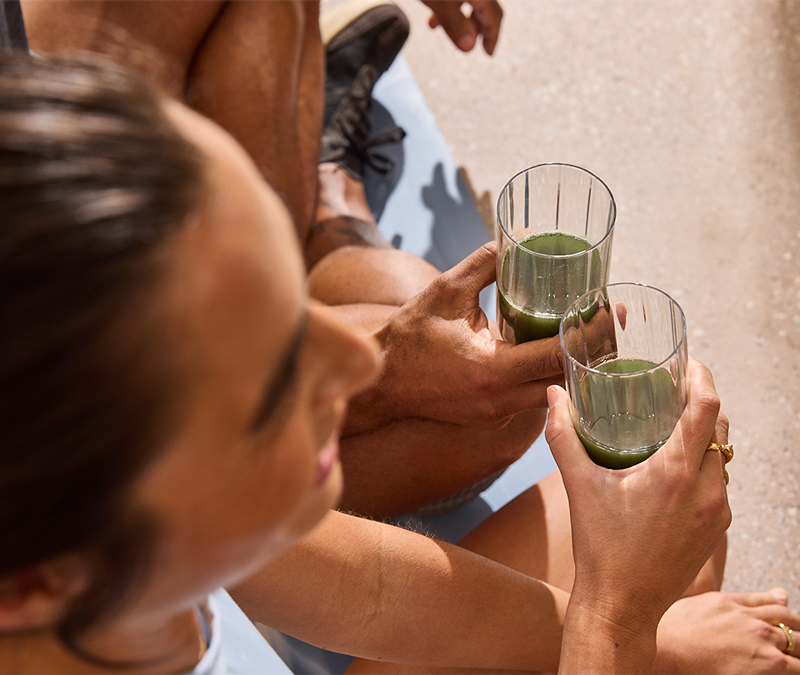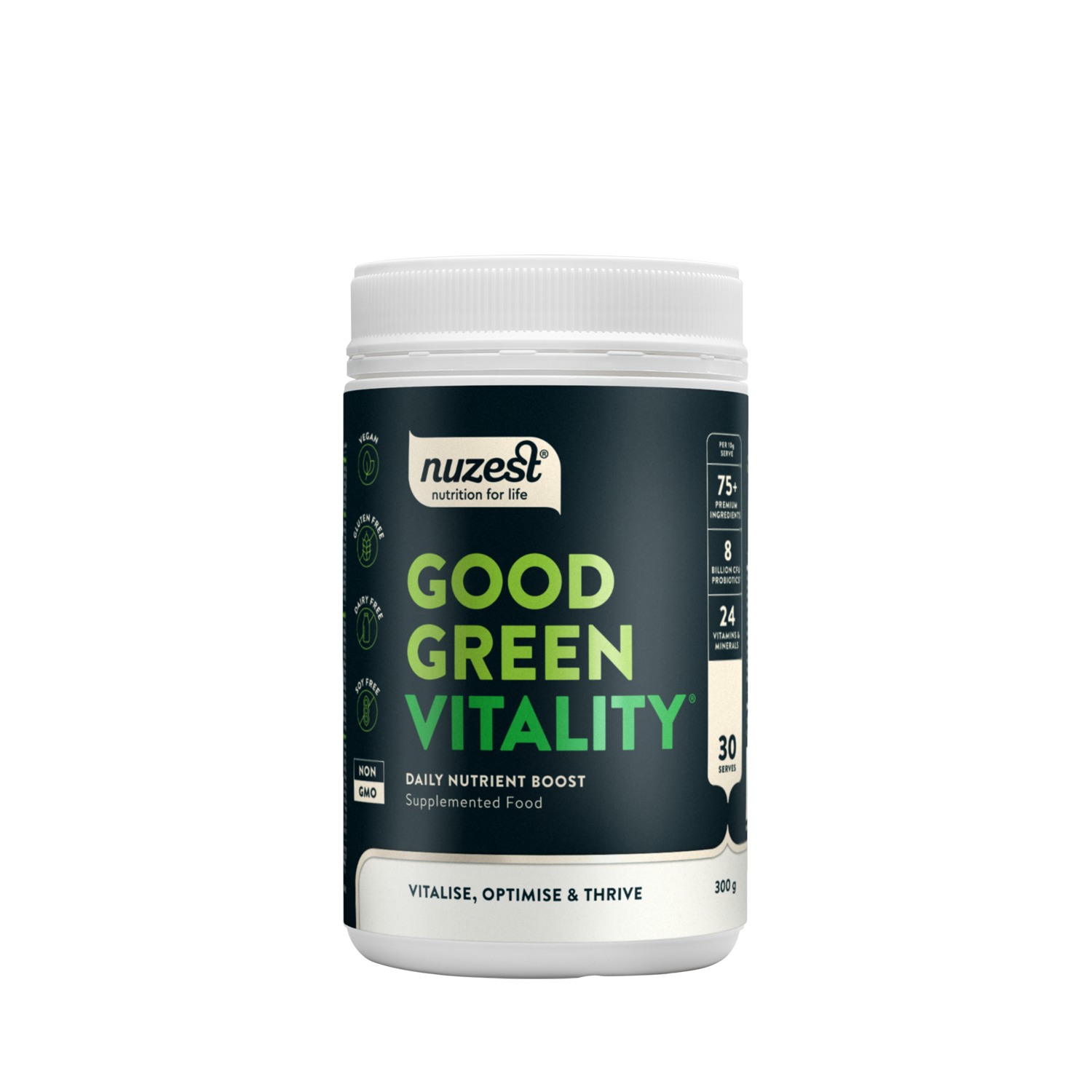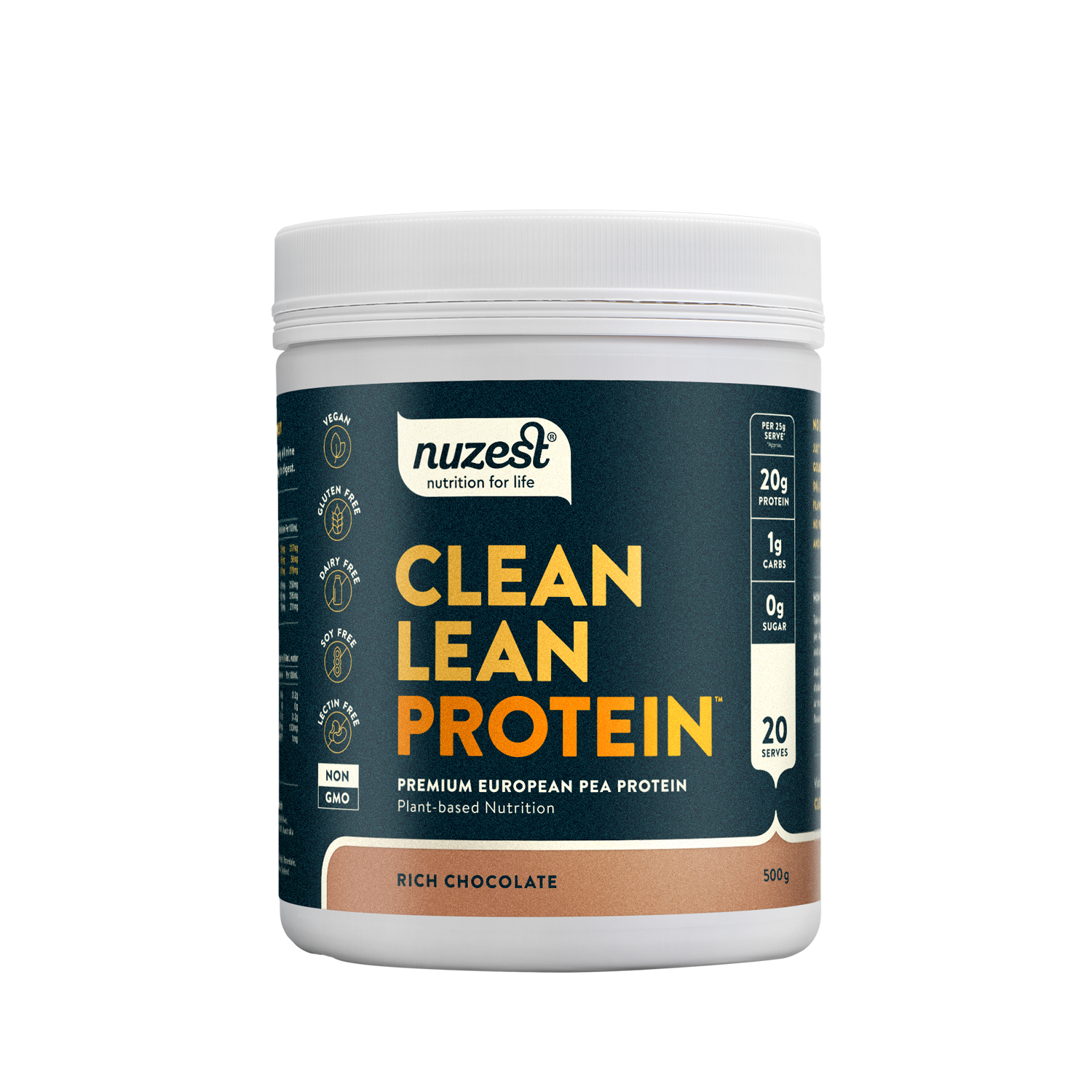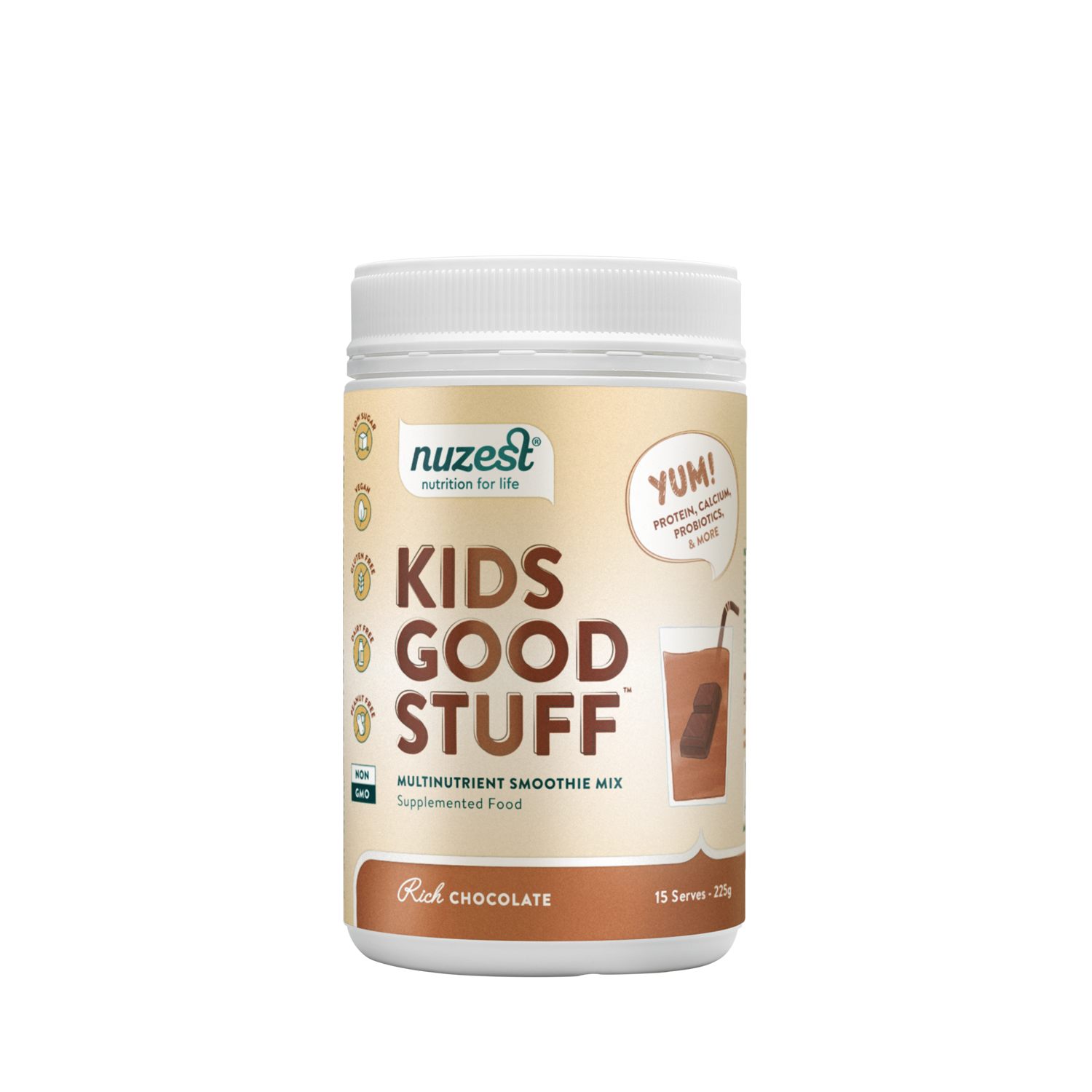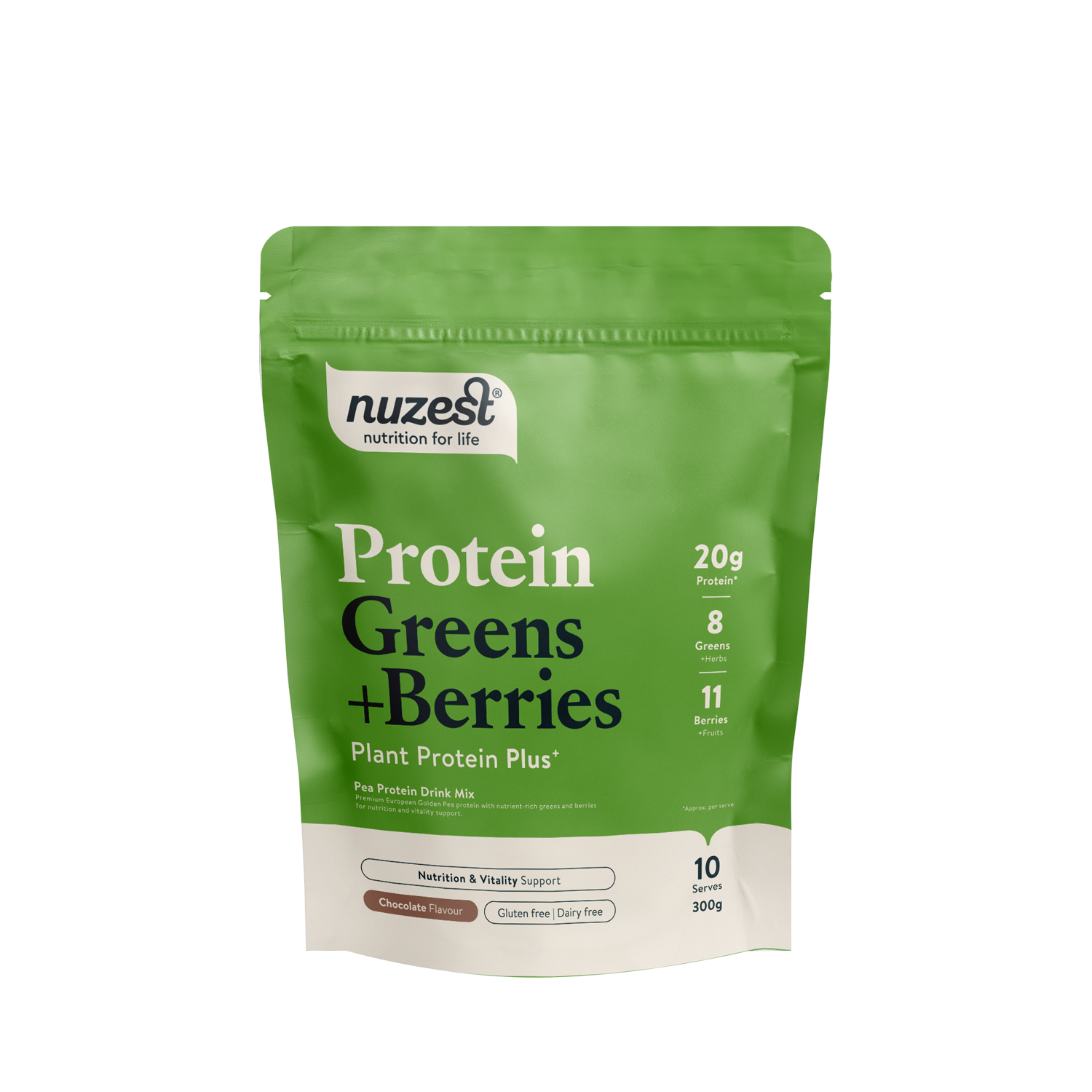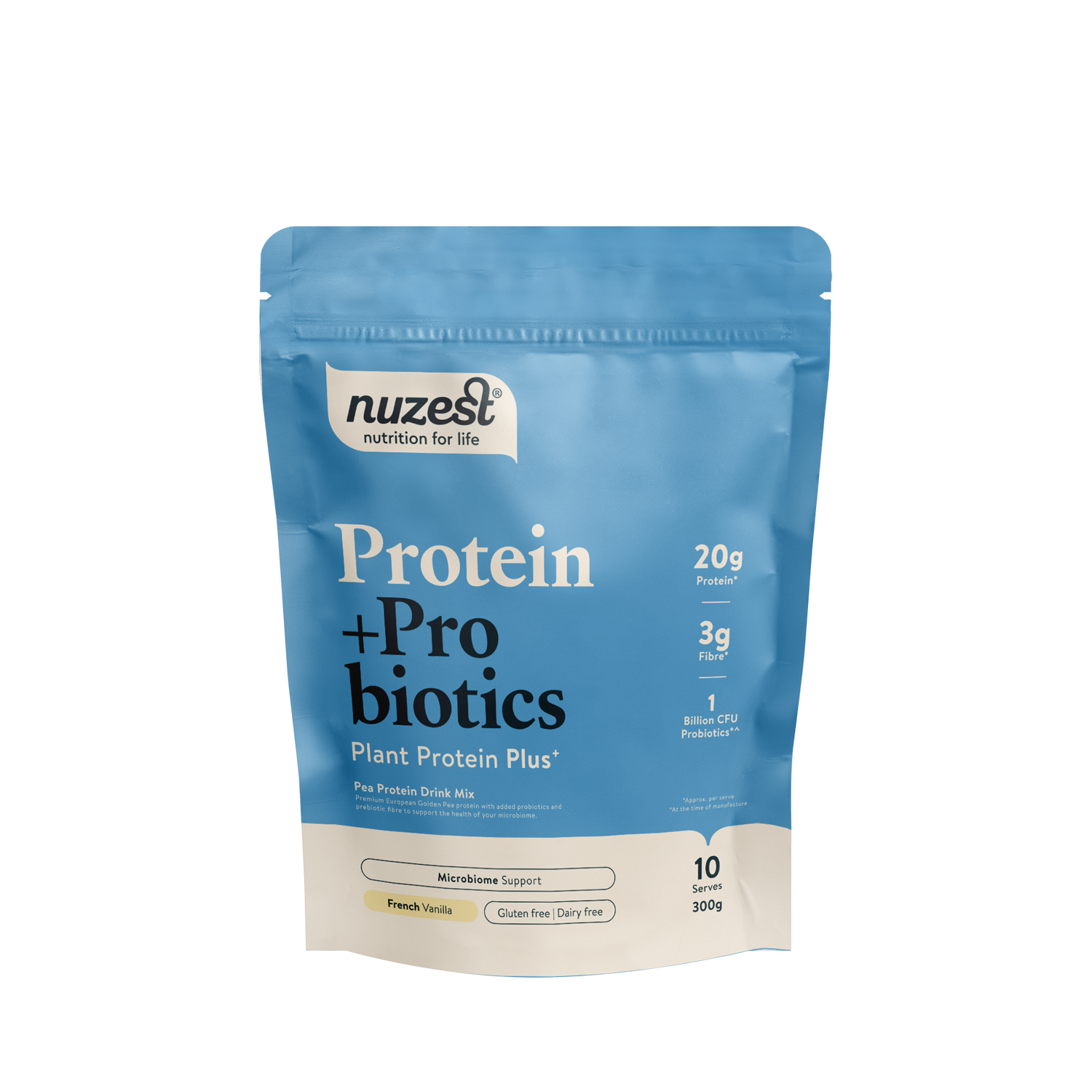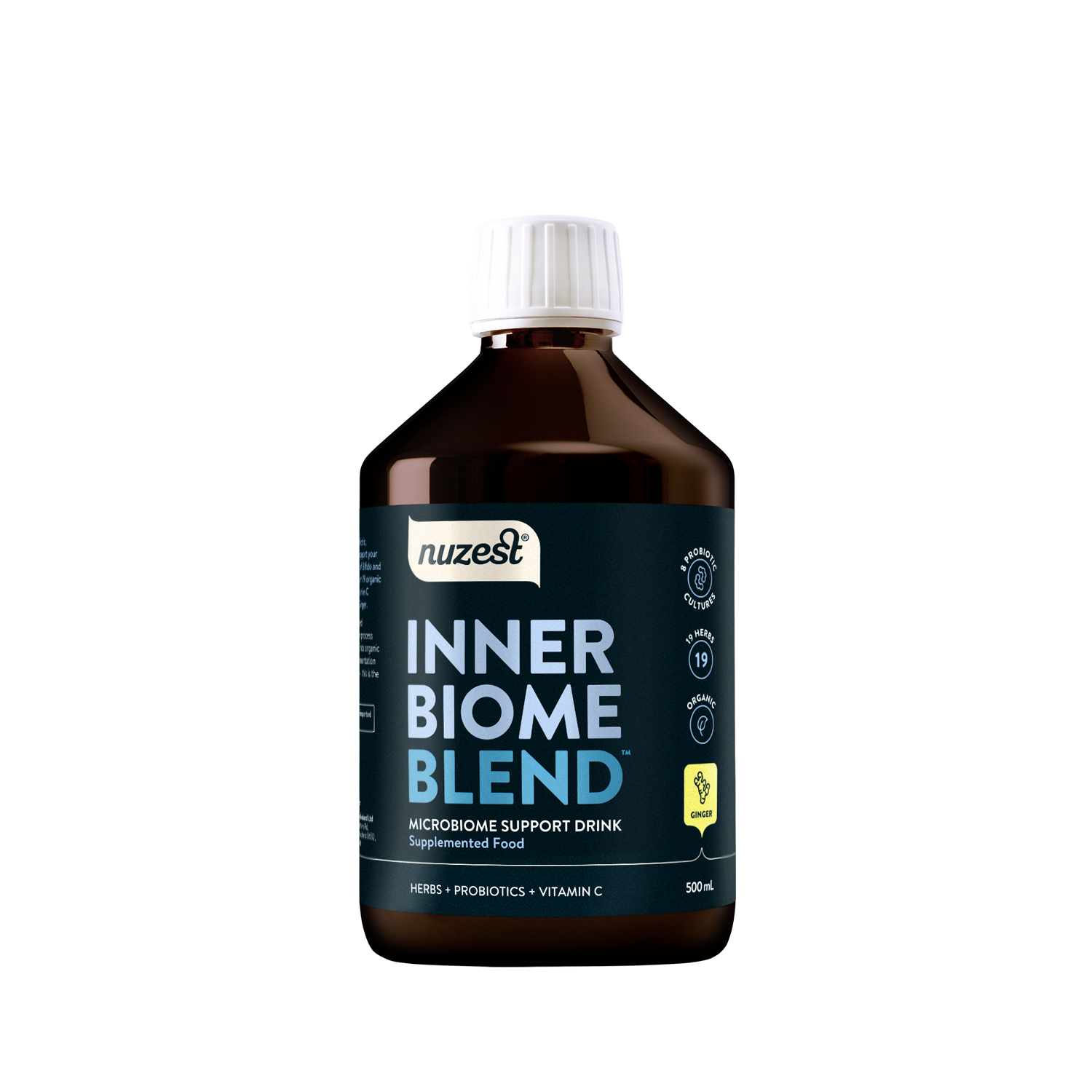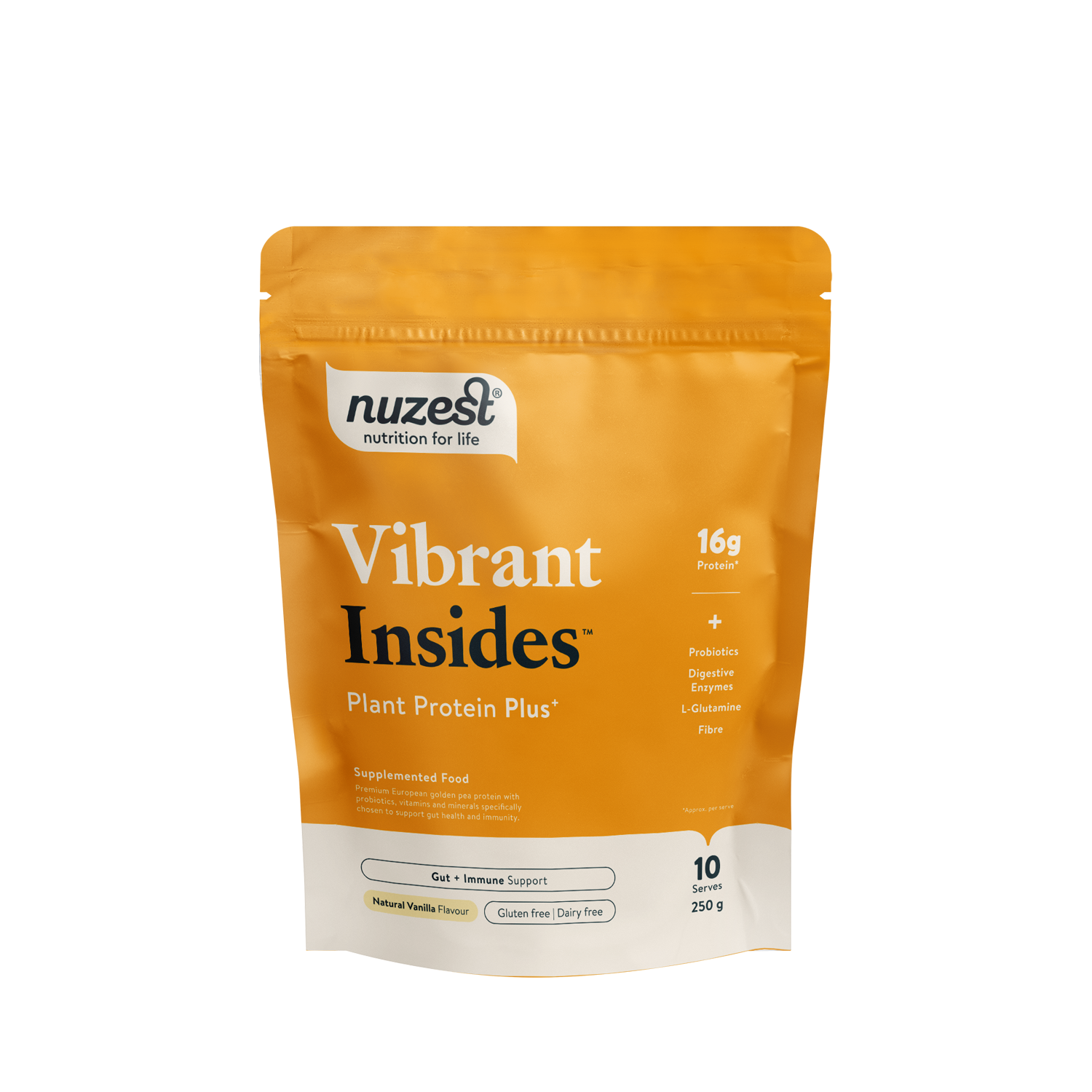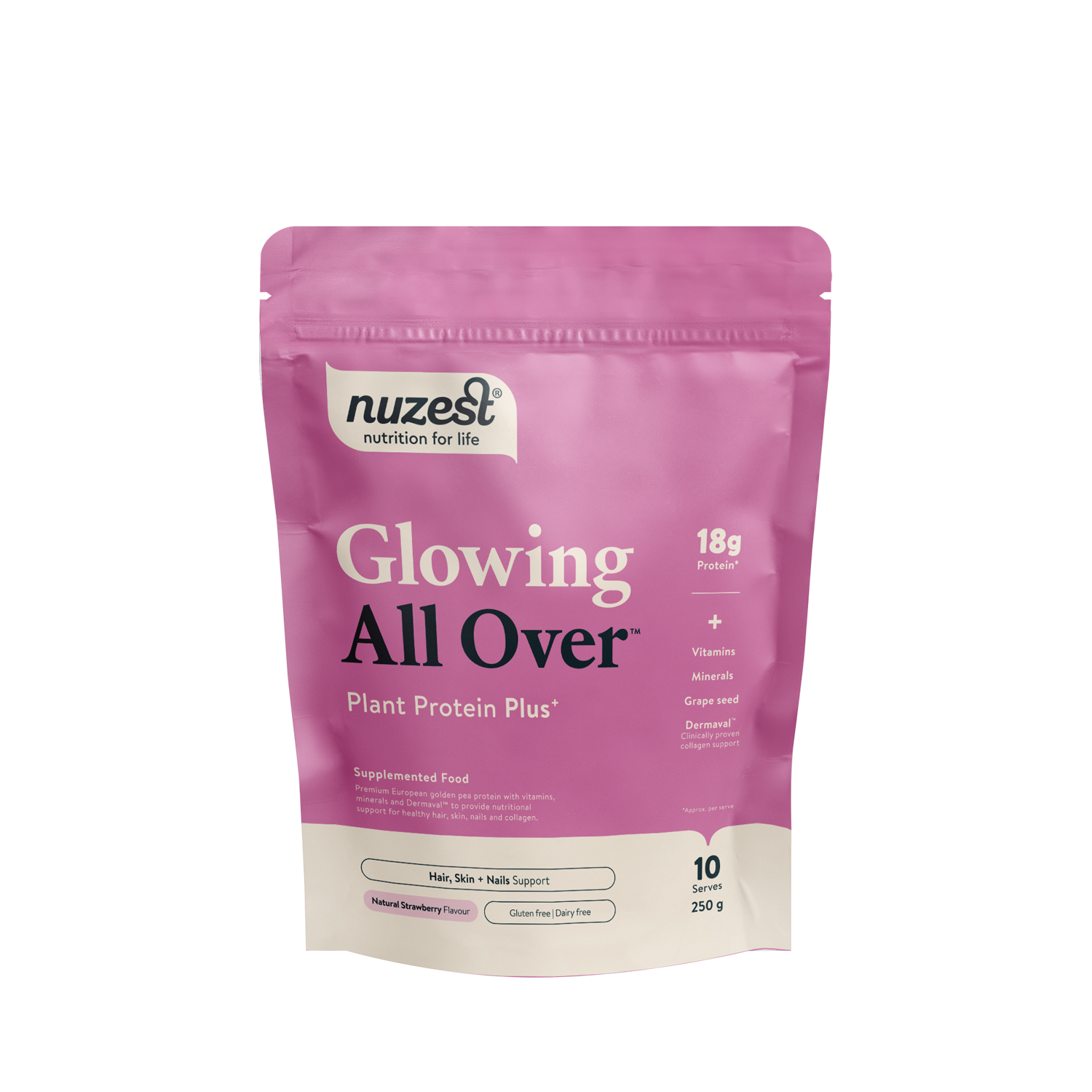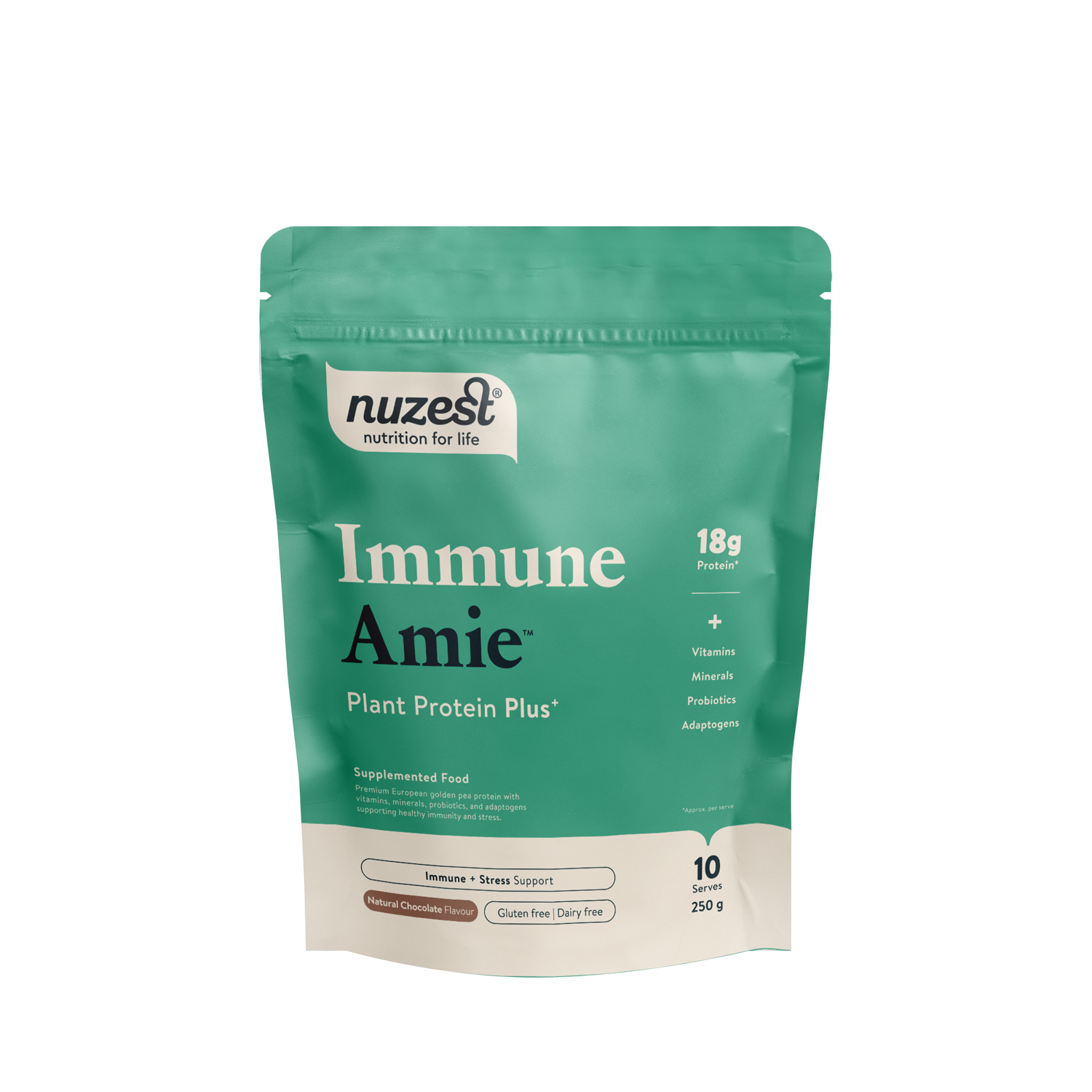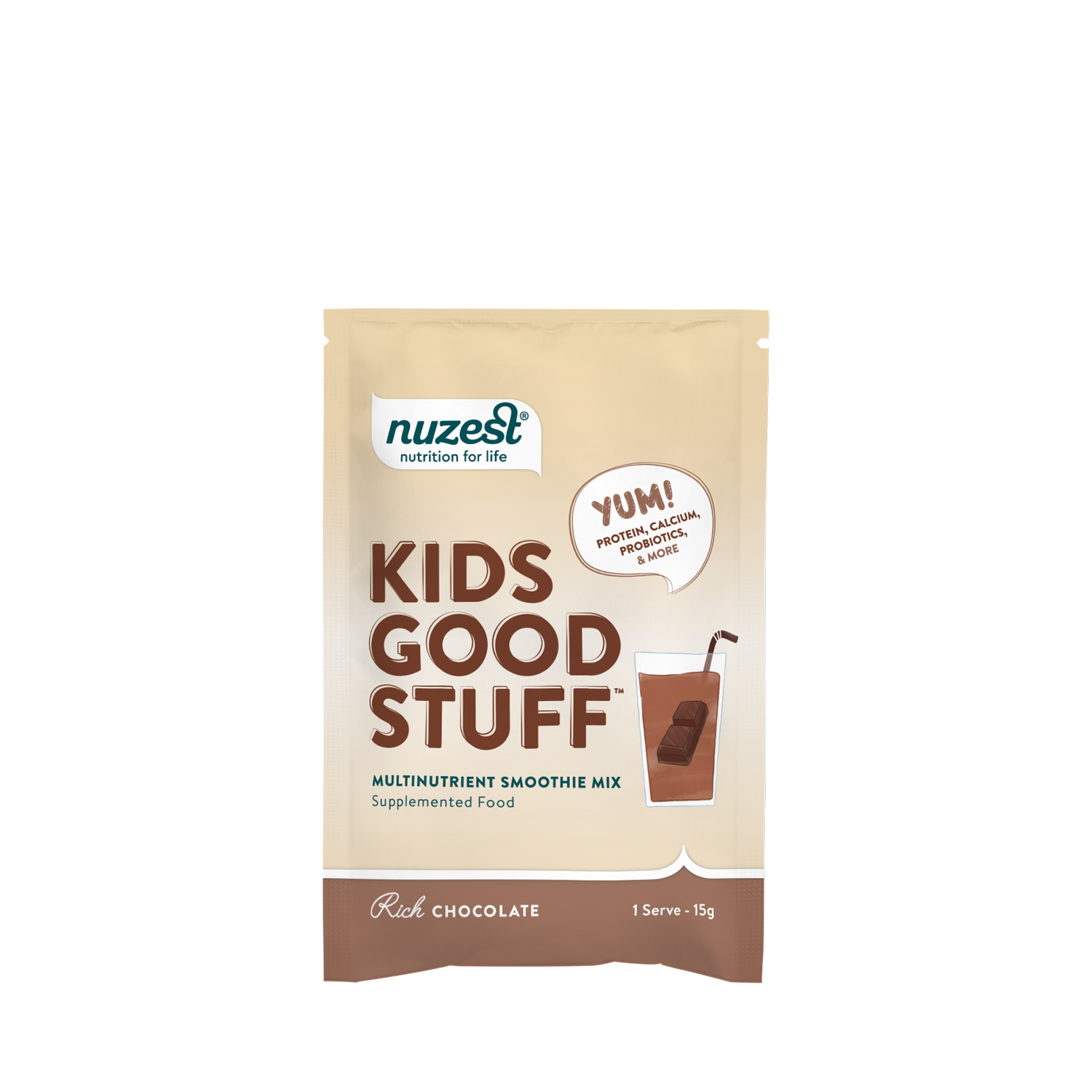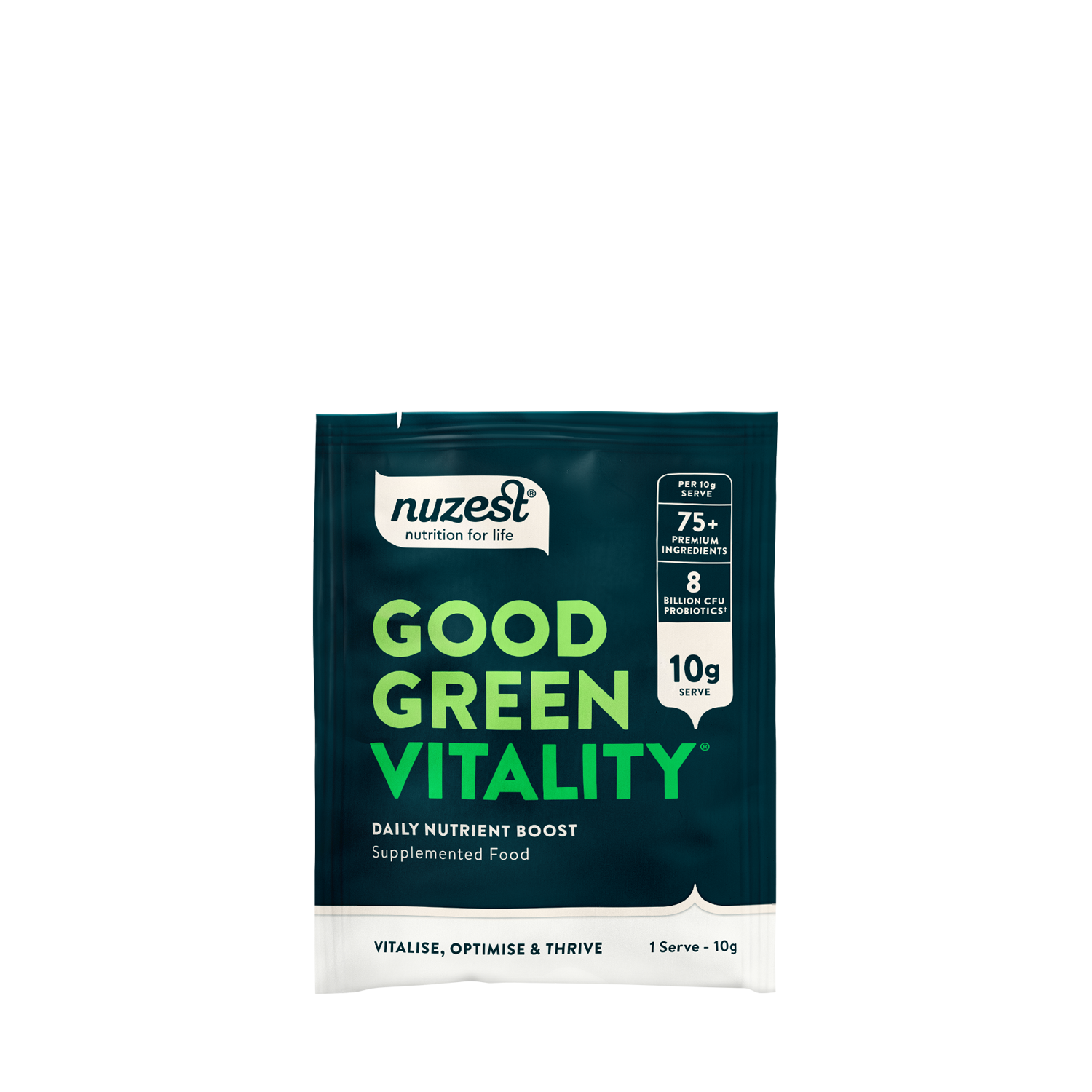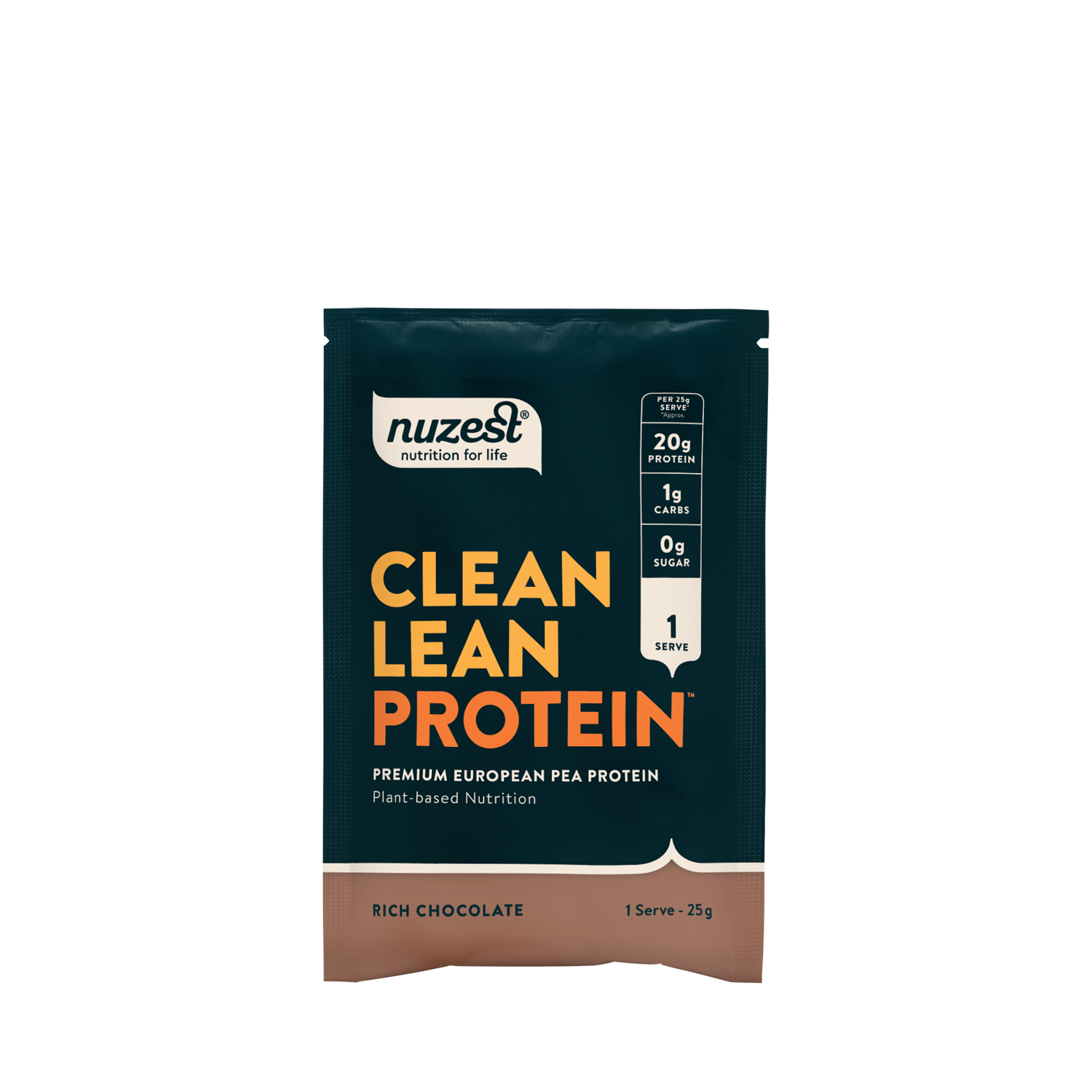How To Boost Your Energy for Exercise – Pre, During & Post-Workout
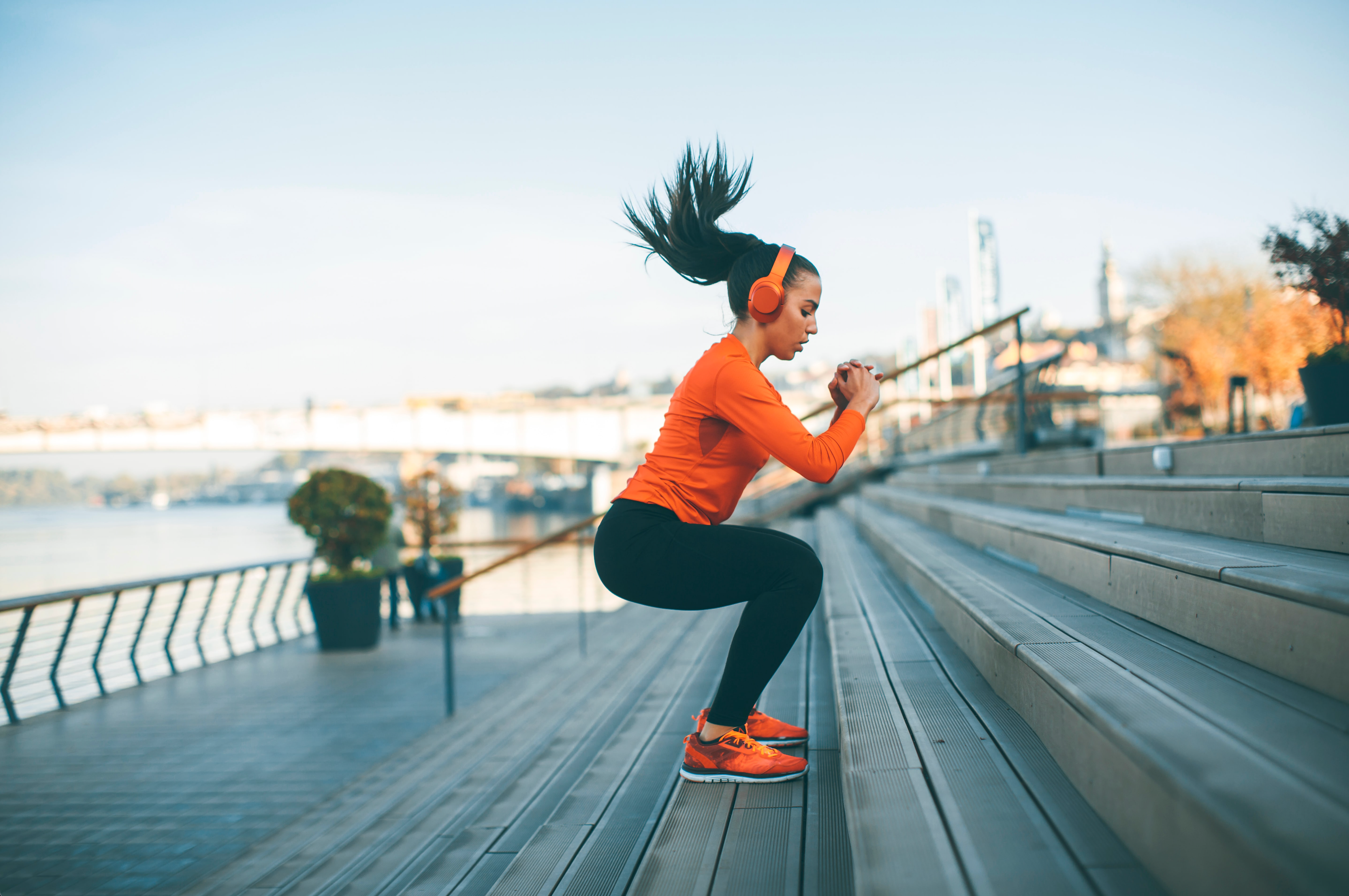
Author: Megan Jones (Adv.Dip.NutMed, BHsc.NutMed)
From professional athletes to weekend warriors and all fitness enthusiasts in between, many of us these days are looking for ways to improve our performance and achieve our fitness goals.
Whether you’re an amateur or a pro, the questions around nutrition and exercise are often the same — What should I eat before and after I exercise? Should I eat during exercise? How does nutrition affect my training?[1] And, can supplementation help?
Science tells us that an optimal nutrient intake prior to exercise will not only help maximize our energy output but also minimize muscle damage.[2] Not getting enough vitamins, minerals and other nutrients can compromise our health and fitness performance, both during our session and after, and for our recovery as well.[3]
Let’s explore this further and discover how fuelling our bodies by eating the right foods and drinking the right fluids, in the right amounts and at the right times, can help our bodies to stay energized while we exercise. Also, how supplementing with a multi nutrient like Good Green Vitality, and protein isolate like our Clean Lean Protein can support optimal energy production and recovery before, during and after exercise.
Key takeaways:
-
Timing our nutrition is critical. [4]
-
Pre-workout meals and snacks need to be easy to digest, and simpler the closer we get to exercising. [5]
-
Hydration is key! Feeling thirsty often means we are already dehydrated. [6]
-
The need to eat during training will depend on the length and intensity of the session. [7]
-
Optimizing our macronutrient ratio is particularly important post-workout. [8]
-
Nutrients like protein, iron, vitamin B12, vitamin C and magnesium can all support our body’s natural energy production. [9][10][11][12][13]
Pre-workout
Think of your body like a car - With regular service and the right fuel, we can optimize our metabolism and overall health, and, keep the engine running while we exercise!
Timing of nutrition is critical. Training on an empty stomach can lead to the breakdown of muscle tissue, and eating immediately before a workout may cause gut discomfort. [4]
As a general rule of thumb, the closer we get to exercising, the simpler our meal or snack should be. This is because while we exercise, blood is diverted to our muscles, and so if we consume food too close to exercise, our stomach may struggle to simultaneously digest the food. These competing demands are a challenge for optimal performance. [5]
If you have to eat within an hour of a workout, sports nutritionists recommended eating something that will be digested and absorbed quickly. However, ideally you should aim to fuel up two hours before exercise by:
-
Hydrating with water.
-
Eating healthy complex carbohydrates such as whole-grain cereals, whole-wheat or sourdough toast, Greek yogurt (or a dairy-free alternative), whole-grain or buckwheat pasta, brown rice, sweet potato, quinoa, fruits and vegetables. [14]
-
Avoiding saturated fats and even too much healthy protein. Both of these are slower to digest and divert oxygen and energy-delivering blood from the muscles.
If we only have 5-10 minutes before exercising, experts recommend eating a piece of fruit such as an apple or banana, both which are easily digested.
During exercise
Whether our training session lasts for several hours, or we have a low- to moderate-intensity routine, small, frequent sips of water are best to support hydration. Hydration helps our concentration and overall performance, increases endurance, and helps to prevent excessive elevations in body temperature and heart rate. [15]
It is worth noting that we should not wait until we are thirsty to start rehydrating. Surprisingly, while training, thirst is not a good indicator of dehydration as we can lose up to one and a half liters of fluid before thirst is even perceived! [6]
When exercising for an hour or less, it is not necessary to eat during training. For longer or higher intensity workouts however, eating 50-100 calories of complex carbohydrates every half hour is recommended. This might look like a banana or half a sandwich, or some Greek yogurt with berries. [7]
Post-workout
After training we can experience fatigue accumulation and an overall reduction in sports performance. This is where the four Rs come into play for optimal recovery:
-
Rehydrate – the amount will depend on the athlete, the environment, and the level of energy exertion.
-
Refuel – to meet energy requirements for the immune system and tissue repair.
-
Repair – optimise your protein and micronutrient intake to benefit tissue growth, and repair, and aid recovery.
-
Rest – to facilitate the recovery of the musculoskeletal, endocrine, immune, and nervous systems. [16]
Each macronutrient — protein, carbohydrate and fat— is involved in the body’s post-workout recovery process, and it is important to consume the optimal ratio in our diets based on our training goals. [8]
Author: Megan Jones (Adv.Dip.NutMed, BHsc.NutMed)
After a workout, our bodies work to rebuild lost glycogen stores and regrow muscle proteins that have broken down and or become damaged during our workout. [17] Evidence suggests that consuming carbohydrate and protein together after exercise enhances muscle glycogen repletion to a greater extent than just carbohydrate alone. A quality protein source provides essential amino acids that build and repair muscles. This in turn may also increase the energy your body puts into storage to draw from in the future. [18]
A post-workout meal (within 15 minutes of training cessation) may look like some sourdough toast with eggs, salmon and avocado, or a smoothie with Clean Lean Protein, Good Green Vitality, your milk of choice, a frozen banana, some berries, chia seeds and walnuts.
Top 5 nutrients to support energy levels for exercise:
Protein
Protein provides our bodies with a longer-lasting energy source (compared to carbohydrates), and total protein intake is the strongest predictor of muscle strength and size. [9]
Foods that are high in protein include nuts, seeds, eggs, lean meats, fish, and legumes. Nuzest’s Clean Lean Protein is a high protein isolate from European Golden Peas, providing up to 20g of protein per 25g serve.
Iron
Iron is especially important for those of us who train due to the high work demands placed on our muscles during exercise. [10] Foods high in iron include dark leafy greens, legumes, lean red meats and organ meats, dried apricots and seafood.
Vitamin B12
Vitamin B12 helps our bodies convert the food we eat into energy [11] and is often promoted as both an energy enhancer, and an athletic performance and endurance booster as well. [19] Our body can’t make B12 on its own so we need to get it through our diet from animal foods like fish, lean meats, poultry, eggs, and dairy products. For those not consuming animal products, it is important to supplement with B12.
Vitamin C
Vitamin C contributes to the proper functioning of energy metabolism and helps reduce fatigue [12][20] It is found in foods like citrus fruits, as well as capsicum, kiwi fruit, tomatoes, and cruciferous vegetables like broccoli, Brussels sprouts, and cauliflower.
Magnesium
Magnesium participates in the process of energy metabolism and supports the maintenance of normal muscle contraction and relaxation. [13] Our need for magnesium increases as our physical activity level goes up. You will find magnesium in foods like pumpkin and chia seeds, cashews, dark leafy greens, almonds, avocados, legumes and the ever-popular, dark chocolate.
A great way to boost your intake of all the nutrients required to support energy production is to add a serve of Good Green Vitality to your daily routine.
References:
-
Rothschild JA, Kilding AE, Plews DJ. What Should I Eat before Exercise? Pre-Exercise Nutrition and the Response to Endurance Exercise: Current Prospective and Future Directions. Nutrients [Internet]. 2020 Nov 1;12(11):3473. Available from: https://www.mdpi.com/2072-6643/12/11/3473
-
Kerksick CM, Arent S, Schoenfeld BJ, Stout JR, Campbell B, Wilborn CD, et al. International society of sports nutrition position stand: nutrient timing. Journal of the International Society of Sports Nutrition [Internet]. 2017 Aug 29;14(1). Available from: https://www.ncbi.nlm.nih.gov/pmc/articles/PMC5596471/
-
Staff MC. Nutrition rules that will fuel your workout [Internet]. Mayo Clinic. 2018. Available from: https://www.mayoclinic.org/healthy-lifestyle/nutrition-and-healthy-eating/in-depth/nutrition-rules-that-will-fuel-your-workout/art-20390073
-
Timing Your Pre and Post Workout Nutrition [Internet]. www.eatright.org. Available from: https://www.eatright.org/fitness/physical-activity/exercise-nutrition/timing-your-pre-and-post-workout-nutrition
-
Semeco A. Pre-Workout Nutrition: What to Eat Before a Workout [Internet]. Healthline. Healthline Media; 2018. Available from: https://www.healthline.com/nutrition/eat-before-workout
-
Bytomski JR. Fueling for Performance. Sports Health: A Multidisciplinary Approach. 2017 Nov 27;10(1):47–53.
-
American Heart Association. Food as Fuel Before, During and After Workouts [Internet]. www.heart.org. 2015. Available from: https://www.heart.org/en/healthy-living/healthy-eating/eat-smart/nutrition-basics/food-as-fuel-before-during-and-after-workouts
-
Semeco A. Post-Workout Nutrition: What to Eat After a Workout [Internet]. Healthline. Healthline Media; 2016. Available from: https://www.healthline.com/nutrition/eat-after-workout
-
Should You Have a Protein Shake Before or After Your Workout? [Internet]. Healthline. 2018. Available from: https://www.healthline.com/nutrition/protein-shake-before-or-after-workout#daily-intake
-
Why iron is so important for athletes [Internet]. NSW Institute of Sport (NSWIS). 2018. Available from: https://www.nswis.com.au/nutrition/why-iron-is-so-important-for-athletes
-
Vitamins for Energy: Does B12 Work? [Internet]. Healthline. 2014. Available from: https://www.healthline.com/health/b12-vitamins-for-energy
-
Vollbracht C, Kraft K. Feasibility of Vitamin C in the Treatment of Post Viral Fatigue with Focus on Long COVID, Based on a Systematic Review of IV Vitamin C on Fatigue. Nutrients. 2021 Mar 31;13(4):1154.
-
Zhang Y, Xun P, Wang R, Mao L, He K. Can Magnesium Enhance Exercise Performance? Nutrients [Internet]. 2017 Aug 28;9(9):946. Available from: https://www.mdpi.com/2072-6643/9/9/946/htm
-
Staff MC. Nutrition rules that will fuel your workout [Internet]. Mayo Clinic. 2018. Available from: https://www.mayoclinic.org/healthy-lifestyle/nutrition-and-healthy-eating/in-depth/nutrition-rules-that-will-fuel-your-workout/art-20390073
-
Better Health Channel. Exercise - the low-down on hydration [Internet]. Vic.gov.au. 2012. Available from: https://www.betterhealth.vic.gov.au/health/healthyliving/Exercise-the-low-down-on-water-and-drinks
-
Bonilla DA, Pérez-Idárraga A, Odriozola-Martínez A, Kreider RB. The 4R’s Framework of Nutritional Strategies for Post-Exercise Recovery: A Review with Emphasis on New Generation of Carbohydrates. International Journal of Environmental Research and Public Health. 2020 Dec 25;18(1):103.
-
Post-Workout Nutrition [Internet]. Healthline. 2016 [cited 2023 Apr 27]. Available from: https://www.healthline.com/nutrition/eat-after-workout#TOC_TITLE_HDR_2)
-
Margolis LM, Allen JT, Hatch-McChesney A, Pasiakos SM. Coingestion of Carbohydrate and Protein on Muscle Glycogen Synthesis after Exercise. Medicine & Science in Sports & Exercise. 2020 Aug 21;Publish Ahead of Print.
-
Office of Dietary Supplements - Vitamin B12 [Internet]. ods.od.nih.gov. Available from: https://ods.od.nih.gov/factsheets/VitaminB12-HealthProfessional
-
Tardy AL, Pouteau E, Marquez D, Yilmaz C, Scholey A. Vitamins and minerals for energy, fatigue and cognition: A narrative review of the biochemical and clinical evidence. Nutrients. 2020 Jan 16;12(1):228.
